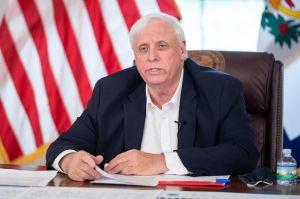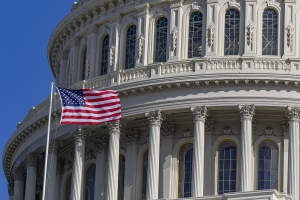Sarah Palin Rouses Tea Party Crowd With Campaign-Like Speech
Former Alaska Governor Sarah Palin attacked President Obama and “corporate crony capitalism” in a populist speech delivered at the Tea Party of America rally in Indianola, Iowa, on Saturday. Though the speech sounded much like one of a presidential contender, she did not announce whether or not she has decided to run.
“Some of us saw this day coming,” Palin said. She then reminded the crowd that it was the three-year anniversary of the day she spoke at the Republican National Convention and accepted the nomination to be vice president of the United States. She read part of that speech in which she described what she thought an Obama presidency would entail.
“In my speech, I asked America, 'when the cloud of rhetoric has passed, when the roar of the crowd fades away, what exactly is Barack Obama's plan? What does he actually seek to accomplish, after he's done turning back the waters and healing the planet? The answer is, to make government bigger, to take more of your money, to give more of it to others, and to take more orders from Washington. And, to reduce the strength of America in a dangerous world.'”
Palin then told the crowd that her prediction had come true. “Back then, it was only my words you had to go by. Now you have seen the proof yourself.”
Palin also compared the Tea Party movement to other protest movements in American history.
“The Tea Party was born of this urgency. It's the same sense of urgency that propelled the Sons of Liberty during the Revolution. It's the same sense of urgency that propelled the abolitionists before the Civil War and the civil rights movement during the 20th Century. The Tea Party movement is part of this noble American tradition.”
Associating the Tea Party Movement with the Abolitionist and Civil Rights movements is particularly noteworthy because the Tea Party movement has been accused by its critics of being fundamentally racist.
Most recently, members of the Congressional Black Caucus (CBC) and the Rev. Jesse Jackson have been more vocal in the accusation. Jackson placed the Tea Party movement in the historical tradition of those who supported slavery and opposed civil rights.
The Tea Party should be called the “Fort Sumter Tea Party that sought to maintain states' rights and slavery," Jackson said, referring to the South Carolina fort where the first battle of the Civil War was fought. "The Tea Party is a new name on an old game. Dr. King fought a 'Tea Party' in Alabama ... He had no weapons, but he confronted the Tea Party."
Rep. Andre Carson (D-Ind.) made a similar accusation at a town hall meeting last week in which he said that some in the Tea Party movement would “love to see” blacks “hanging on a tree.”
Palin fashioned herself as a political outsider. She criticized the “permanent political class” for representing the interests of money donors over voters, and even included Republicans in her critique.
The permanent political class “talk endless about cutting government, yet they keep spending more. ... Then they pat their own backs and claim they faced and solved the debt crisis that they got us in,” Palin said.
Palin then drew a distinction between those who live in and around Washington and those who do not.
“They (the political class) don't feel the same sense of urgency that we do. Why should they? For them, business is good. ... Seven of the 10 wealthiest suburbs are suburbs of Washington, D.C. ... Usually I'll say, polls, neh, polls are for strippers and cross-country skiers. But polls in those parts actually show that some people there believe that the economy has actually improved.”
Political insiders have used their positions in government for personal gain, according to Palin.
“Ever notice how so many of them (the permanent political class), they arrive in Washington, D.C., of modest means and, miraculously throughout the years, they end up becoming very, very wealthy. It's because they derive power and their wealth from access to our money. ... They use it to bail out their friends on Wall Street and their corporate cronies and to reward contributors and to buy votes via earmarks ... and there is a name for this. It's called corporate crony capitalism.”
Palin went on to define corporate crony capitalism as “the collusion of big government and big business and big finance to the detriment of all the rest, to the little guy.”
Corporate crony capitalism also infects the Republican Party, Palin warned.
“Now to be fair, some GOP candidates, they also raise mammoth amounts of cash and we need to ask them to what if anything do their donors expect in return for their investments. We need to know this because our country can't afford more trillion dollar thank-you notes to campaign backers.”
That accusation could be seen as a swipe at Governor Rick Perry (R-Texas) who has reportedly maintained a “pay-to-play” system in Texas in which corporate leaders donate to his campaign in exchange for government appointments and grants.
Palin was interrupted in the middle of the speech with chants of “run, Sarah, run” from the crowd. She did not say, however, to the nearly 2,000 in attendance whether she would run for the presidency or not.
Conservative commentator Bill Kristol, who was a strong advocate for adding Palin to the Republican ticket in 2008, was asked on “Fox News Sunday” if he knew whether Palin was going to run for president or not.
“No idea,” Kristol answered, “but crony capitalism is the right message, I think, for the Republican Party and frankly … it has to be a criticism of the Obama administration and also a criticism of the [George W.] Bush administration.”





























